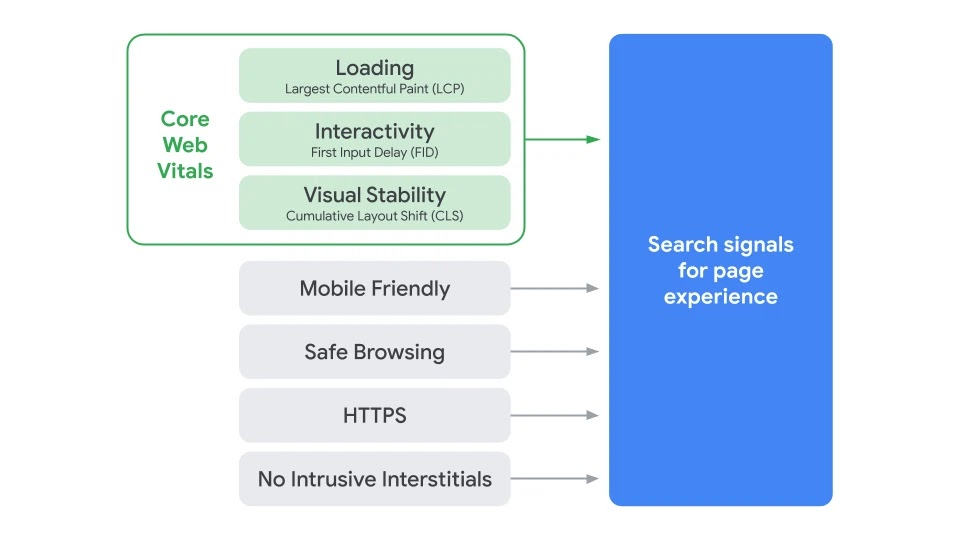Every couple of years, some mysterious person writes a post that goes something like, ‘Blogging is Dead!’ or ‘SEO Doesn’t Matter in 2021.’ But if that’s true, explain why:
- 70% of online marketers find that SEO is better than PPC for generating leads (that actually buy!)
- 70-80% of consumers ignore paid search results and, instead, focus on organic search results
- 18% of local search results convert into a purchase 24 hours later
We could go on but why beat a dead horse? SEO, after all, is very much alive. And for businesses in Sydney trying to get on the first page of search engine results, getting your SEO right matters more than ever — but may not be as ‘easy’ in 2021 as it was 10 years ago.
Why SEO Matters More Than Ever in 2021
In the last few years, Google has committed to cutting out the fat and shaping up the internet in their own image.
From multiple core updates in the last five years to a focus on introducing new tools such as the neural-network driven update to its search algorithm, BERT, Google’s aim is simple (if gargantuan).
It wants to:
- Connect searchers/users with high-quality, reliable, and relevant results
- Challenge website/business owners to tailor their strategy and experiences such that it delivers the above
Simple, right? Well, not exactly.
SEO — or search engine optimisation — as an activity for generating traffic has multiple moving parts.
None of these parts is a mystery — in fact, Google’s frequent updates spell out exactly what website owners need to ‘master’ in order to accomplish the two goals discussed above.
We’ll cover the ranking factors you’ll need to focus on in the next section. So scroll down to find out why SEO still matters — but it’s not as easy as you think because each of the factors is a project on its own!
Let’s take Google’s recent announcement that they’ll be focusing on a ‘gradual rollout’ of the page experience ranking signal starting in mid-June. This means core web vitals, which includes:
- How fast your site loads (loading or LCP)
- How seamless the interaction is with site elements like buttons, actions, etc. (interactivity or FID)
- How well the elements on your site remain consistent and static, allowing you to actually click where you intended (CLS)

What does this mean? Well, websites that have long been focusing on optimising how quickly their sites load or how seamless the mobile experience is compared to desktop, among other factors, are well placed to take a top spot in search engine rankings.
These elements are all part of a cohesive SEO strategy. See, the old adage of ‘Content is king’ is a misnomer. It’s more accurate to say that SEO is king because, without it, content goes nowhere — and neither do your efforts to rank on the first page of search results.
The Top 6 Ranking Factors for SEO
Before we begin, here’s a fair warning: These ranking factors each have their own complexity built in. Content, for example, requires keyword research, search intent research, and strategy for featured snippets.
Similarly, on-page optimisation calls for you to address metadata, schema, and internal link structure.
Whew!
Take a deep breath and let’s dive in.
1) High-Quality Content
High-quality content is closely related to understanding your audience. Without knowing why you’re creating content and who you’re speaking to with that content, you’ll never win.
However, high-quality content also doesn’t mean fretting for ages on production value. You could produce a casual video of you talking about a topic your audience is interested in but be sitting in a poorly lit room. You could then insert that video into a blog post that’s well-written, free of grammatical errors, and has clear, actionable takeaways for your reader.
That type of high-quality content will resonate with your audience and get traffic through shares and links.
2) Nailing Search Intent for Targeted Traffic
Imagine deciding to write a 3,000-word blog post about your weekend adventures because you happened to be at a concert that’s trending in the news.
That means there will be quite a bit of traffic searching for that topic, right? True. The only problem is that you’re a pest control company, and what you want your audience to do when they come on your website is book a consultation.
So why is your content about your weekend?
Nailing down why your ideal user is searching for your product or service is crucial to getting the right people on your website. It’s also important for telling you what type of content to create.
3) Mobile-Friendly Site Design
In 2021, mobile-friendly websites are a no-brainer. They’ve been around for almost a decade, so use a template or a developer to get this part right.
4) Optimising Site and Page Speed
Consider this: Bounce rates increase by 103% if your website takes even two extra seconds to load.
There are several tools you can use to test and improve page speed. Minifying JavaScript or using a content delivery network (CDN) are just a few initial ideas for increasing how quickly your page and website load.
5) On-Page Optimisation
Without a doubt, our team at Whitehat Agency finds that this aspect of SEO services in Sydney is what our clients struggle with implementing the most. There are quite a few ‘technical’ components that you have to consider, including:
- Cleaning up your metadata
- Using schemas to make it easier for search engines to identify important information
- Create a well-researched internal link structure that includes the content you’re creating and the specific anchor text keywords you need to use
6) Authoritative, Relevant Backlinks
Tell us you’ve mastered SEO without telling us you’ve mastered SEO.
For that, we’ll need to look at your backlink profile and strategy.
Links are absolutely essential to a successful organic search ranking regardless of industry.
Read that again.
When building a link strategy, especially one that depends on other websites linking out to you, you’ll need original, high-value content types. These include resources such as case studies, expert round-ups, industry surveys, podcasts, video interviews, and more.
And when you use others’ content, you’re telling Google that you find this link so worthy and relevant for your readers that you’re willing to risk them leaving your site. That goes a long way in signalling to Google’s ranking factors that your focus is the audience first.
Conclusion
There’s only one way to truly simplify SEO for businesses in Sydney (without you needing to learn it all from scratch): hire experts to work with you and improve your SERPs. Get in touch with the team at Whitehat Agency to learn more about how we can catapult your traffic and help you hit revenue goals.
Recent Posts
Get your FREE 30 minute Digital Marketing Consultation.
Learn how you can grow your business by unlocking the full potential of Digital Marketing.





